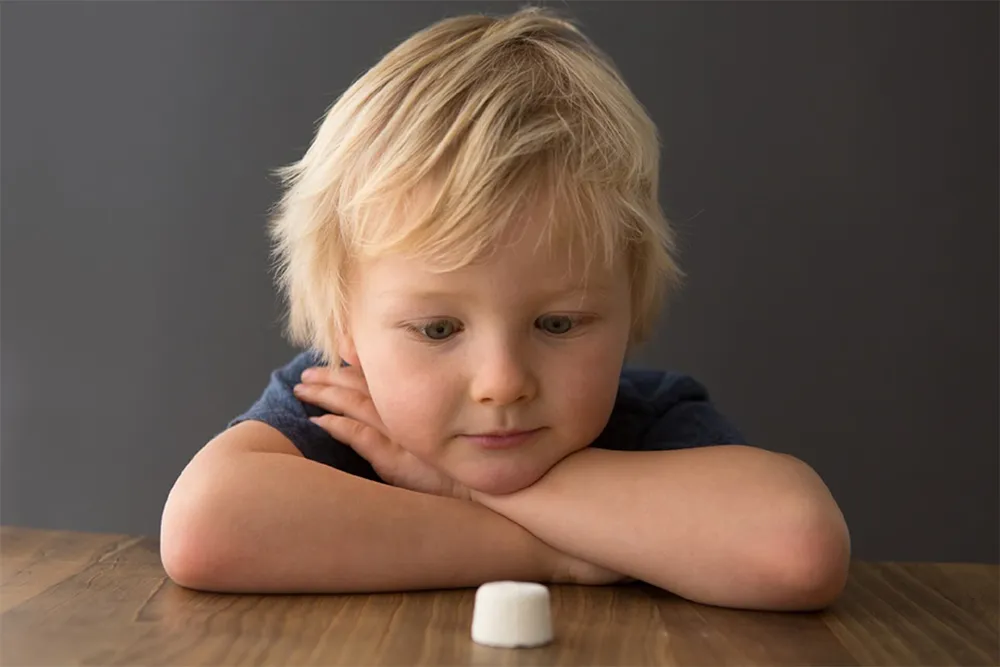The marshmallow experiment
The researcher told the child that he was going to leave the room and that if the child did not eat the marshmallow, then they would get a second marshmallow. However, if the child decided to eat the first one before the researcher came back, then they would not get a second marshmallow.

So the choice was simple: one treat right now or two treats later.
The researcher left the room for 15 minutes. Some kids immediately sprung up and ate the marshmallow while some kids twisted and turned in their seats and gave in after a few minutes and the rest few remained glued to their seats and waited for the researcher’s return.
The researchers followed up with these kids over the next 30-40 years. Folks who delayed their gratification saw higher SAT scores, lower drug abuse and relatively better in life. Researchers finally concluded that delayed gratification was important for success in life.
But, the big question is that how to modify the internal barometer from instant gratification to delayed gratification. Based on another study from the Researchers at the University of Rochester who replicated the same study. They identified that a child’s ability to delay gratification and display self-control was not predetermined, but rather was impacted by the experiences and environment that surrounded them.
We can train our ability to delay gratification, just like any other muscle. This can be done by promising something small and then delivering. Over and over again until your brain says, 1) yes, it’s worth it to wait and 2) yes, I have the capability to do this.
Do you have believe in instant gratification or delayed gratification?
~P



